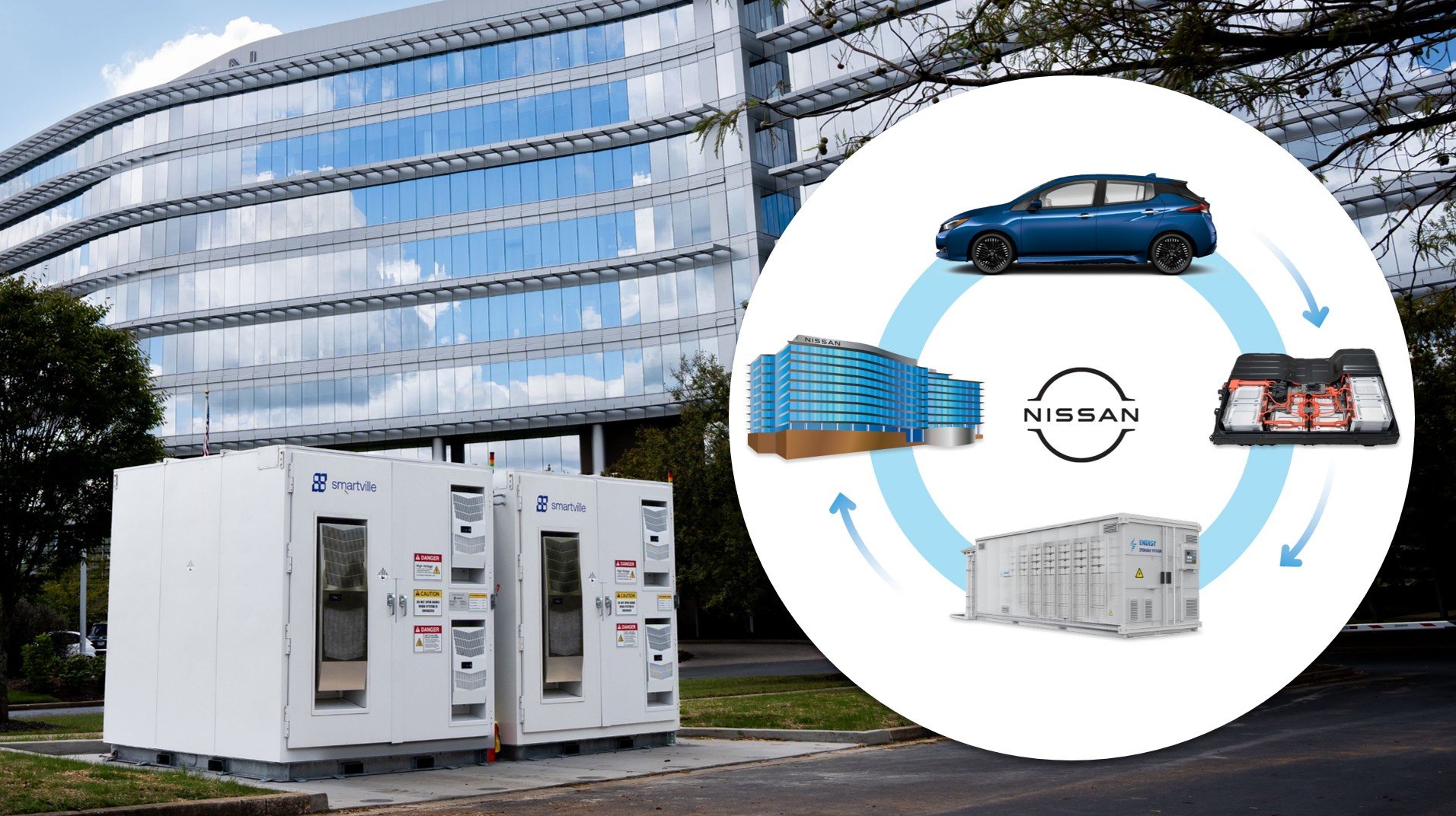Sign up for our popular daily email to catch all the latest EV news!
Nissan is taking a pioneering approach to sustainability by giving its LEAF batteries a second life. The company has launched a Battery Energy Storage Solution (BESS) project at its Americas Headquarters in Franklin, Tennessee. This project utilizes used LEAF batteries to help offset the building’s power consumption, contributing to Nissan’s ambitious goal of achieving carbon neutrality by 2050.
Key Highlights:
- The BESS project is expected to reduce CO2 emissions by 3.7 tons annually.
- This initiative minimizes waste and costs while maximizing the use of repurposed and recycled materials.
- The project aligns with Nissan’s commitment to environmental responsibility and its broader sustainability goals.
- The project aims to optimize grid performance by studying the reuse of EV batteries.
The BESS project at Nissan’s Americas Headquarters involves the installation of two second-life battery systems. These systems will store excess energy generated during off-peak hours and discharge it during periods of high demand. This process helps reduce the building’s reliance on the grid, especially during peak hours when energy consumption is at its highest.
“In winter, that’s first thing in the morning when employees arrive and the building’s electric heating is in high demand. In summer, it’s when the sun is at its hottest and the air conditioning is working hardest,” explains Chris Goddard, Regional Energy and Environmental Manager at Nissan.
This initiative marks Nissan’s first second-life battery project in the United States. It underscores the company’s commitment to exploring innovative solutions for electric vehicle battery reuse and recycling. By extending the life cycle of these batteries, Nissan is reducing waste, minimizing environmental impact, and contributing to a more sustainable future.
Sign up for our popular daily email to catch all the latest EV news!


